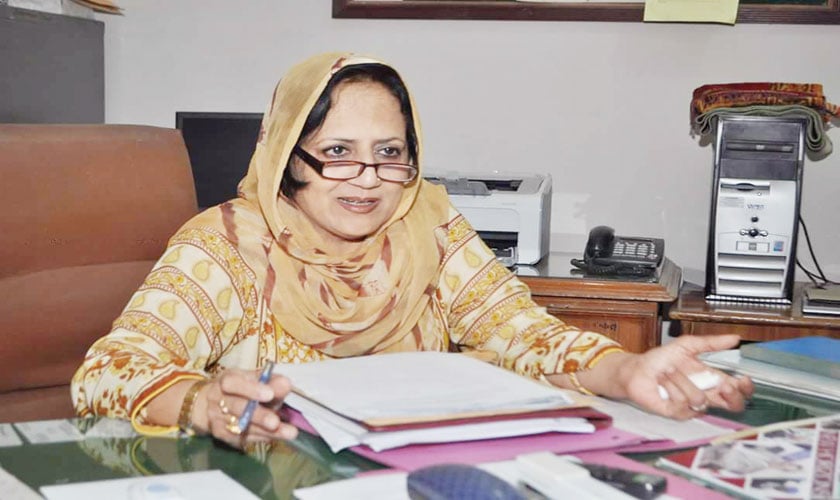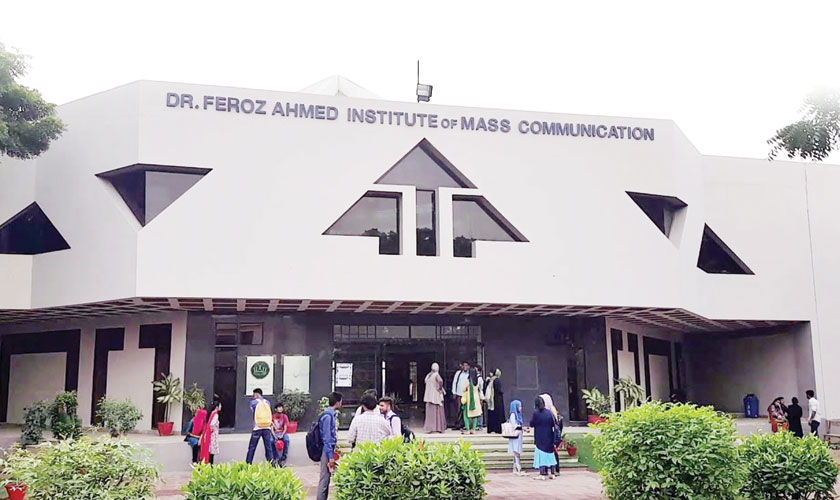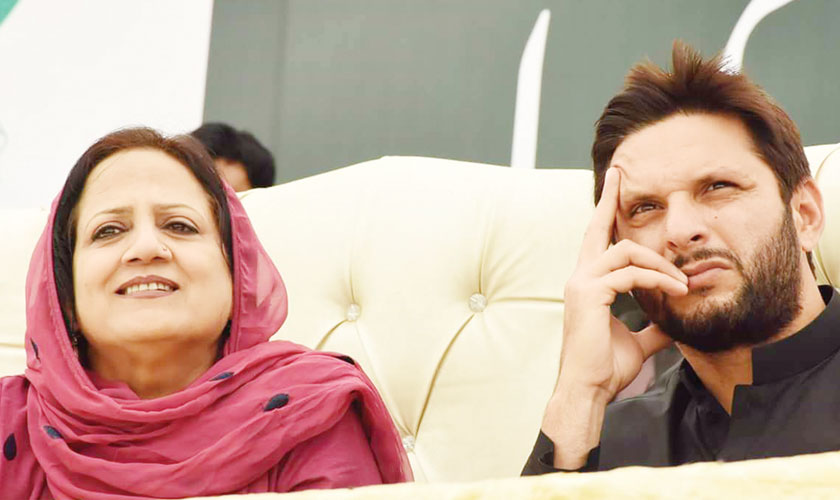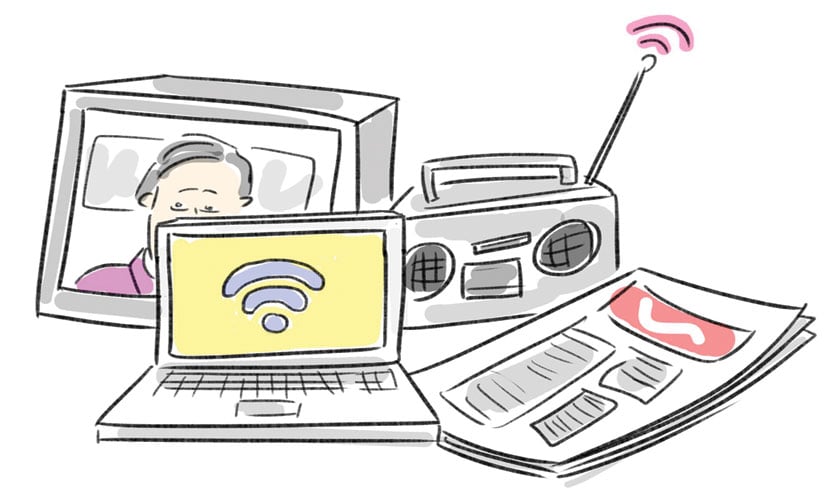
HOD SERIES
Dr. Seemi Naghmana has the experience of teaching Mass Communication at various universities in Pakistan. Her teaching career started with University of Karachi where she was part of the visiting faculty. Later, when she moved to Quetta, she got the chance to establish the Mass Communication Department at University of Baluchistan. She remained there first as the chairperson of the department, and later as the dean of faculty, for 23 years. Dr Naghmana came back to Karachi in 2010, to join Federal Urdu University as a professor in the Mass Communication Department, and then went on to serve as dean of faculty there. In 2015, her former colleagues and teachers persuaded her to re-join her alma mater, where she heads the Mass Communication Department now.

Would you rather be liked or respected?
Dr.Seemi Naghmana (SN): Respected!
How would your students describe you?
SN: I think some of my students would describe me as strict and disciplined. The ones who interact with me more often would say I am polite and kind-hearted. As the head of department, I have to maintain a ‘professional distance’ and that is why students don’t know much about me.
How do you handle criticism?
SN: If criticism sounds constructive, I think about it. I analyse my decisions and see how I can work on them. This is weird, but I enjoy criticism; I become reflective and learn more about myself. Criticism comes as an opportunity to improve and perfect oneself.
What are you reading right now?
SN: I keep reading multiple books at the same time. Right now, it is No God but God.
What is the scope of Mass Communication? How would you describe your subject?
SN: Mass Communication is an expanding and exciting field that just keeps growing. Even in the worst of times, Mass Communication thrived as a career. It actually covers every aspect of life; we study about culture, society, economy and politics and learn how to share information with others and educate masses in an effective way.
Entertainment is another area that makes Mass Communication an interesting subject. Students learn to produce entertainment content for print and electronic media; we also plan to have film and television production department in the future.

Digital platforms have opened doors to new worlds; now, we have to cater to different audiences all over the world and make communication effective and meaningful.
Moreover, journalism is also about understanding societal problems and their solutions.
What facilities are available for the Mass Communication students?
SN: We offer specializations in three fields: electronic media, print media and advertisement and public relations. For electronic media, we have a well-equipped radio production studio. As I said earlier, we are still working on establishing a television studio in the department. We need to have more sophisticated equipment to provide students hands on training, as the equipment we have is mostly obsolete. We are also looking towards corporate sector for help in this regard.
And, we also organize job fairs for our students.
Q7: How do you help the underachieving students?
SN: This is something I cannot deal on my own, because at undergrad level I hardly teach one or two classes. While teaching students, I try to help them with the problems they face. My main focus is on the talented yet underprivileged students, who come from up-country or rural background.
How do you motivate your staff?
SN: To stay motivated you have to keep learning. I send my teachers to various training workshops so they can acquire new skills and stay abreast of changes and practices in the field.

What is the biggest challenge that your department faces?
S.N: I think the biggest challenge for us is lack of resources. After that, high student-teacher ratio in classroom affects the quality of teaching and training at the department. Then, we need to bring advanced technology to assist our students; unfortunately, we still lag far behind many countries in using technology. Another challenge is to train sound journalists who can handle critical information and deal with societal issues.
Do you offer your students any exchange programme/affiliation with any foreign university?
S.N: We don’t have any exchange programme.
One thing about your department/university that most people don’t know?
S.N: People aren’t actually aware of the quality research work we produce.
Funny or weird things you hear about your department?
SN: That our students are not capable of working in the media.
Three misconceptions that people have about your department?
S.N: I don’t think there are too many misconceptions. There is one, which is actually a global phenomenon: people in the industry believe we don’t know how things are done in the field. This is the biggest misconception and all other misconceptions are attached to it.